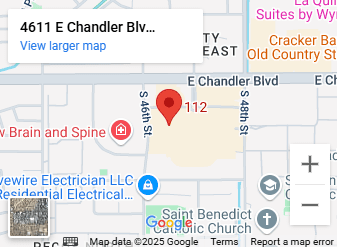Easy-to-Follow Checklist for Selling Your Business: A Step-by-Step Guide to Prepare, Value, and Close the Sale
Selling a business without a structured roadmap often leads to missed opportunities, extended timelines, and diminished value. This selling my business checklist offers an actionable, step-by-step framework to define your goals, accurately value your company, organize financial and legal documents, assemble an expert deal team, navigate buyer engagement and due diligence, and finalize closing with a smooth post-sale transition. Entrepreneurs will discover how to align personal objectives with market realities, leverage proven valuation methods, present pristine financials, safeguard confidentiality, and negotiate optimal terms. Along the way, insights from seasoned seller representation specialists ensure you maximize return, protect sensitive information, and expedite a successful exit.
How Do I Define My Business Sale Goals and Exit Strategy?

Defining sale goals and an exit strategy means clarifying personal objectives, financial targets, and timing to support a profitable and seamless transfer of ownership. By articulating what you need from the transaction—whether it’s a specific net proceeds target, a timeline aligned with retirement plans, or securing employee stability—you promote alignment among advisors and potential buyers. For example, a business owner aiming for a transition within 12 months with at least 80% of current cash flow can structure operational adjustments to enhance appeal and meet buyer expectations.
Personal motivations range from funding retirement or a new venture to reducing liability and risk exposure. Financial objectives should include desired net proceeds, tax considerations, and debt payoff. Assessing lifestyle goals alongside business value targets fosters a clear exit roadmap that guides subsequent preparation and marketing efforts, laying the groundwork for accurate valuation and effective buyer outreach.
What Personal and Financial Objectives Should I Consider Before Selling?
Start by listing your personal priorities—retirement age, reinvestment plans, legacy goals—and quantify them in monetary terms. Incorporate tax planning, debt retirement, and liquidity needs to determine a realistic net proceeds benchmark.
How Do I Develop a Clear Business Exit Strategy Checklist?
Creating an exit strategy checklist involves mapping out each phase: goal definition, operational enhancements, valuation timing, marketing launch, due diligence readiness, negotiation milestones, and closing procedures. Assign responsibilities and deadlines to maintain momentum.
Why Is Timing Important in Planning My Business Sale?
Timing influences market competitiveness, buyer appetite, and valuation multiples. Selling during periods of stable economic conditions and aligned with peak industry cycles enhances buyer interest and supports premium pricing.
How Do I Accurately Value My Business Before Selling?
Business valuation determines fair market value by analyzing financial performance, industry comparables, and asset worth to optimize sale price and reduce negotiation friction. An accurate valuation signals transparency and readiness, which builds buyer confidence and streamlines due diligence.
The three most common valuation approaches each rely on distinct metrics and yield unique insights:
| Valuation Method | Basis | Advantage |
|---|---|---|
| Income Approach | Discounted future cash flows | Captures projected earnings |
| Market Comparables | Industry multiples based on recent sales | Reflects real-world transaction benchmarks |
| Asset-Based Approach | Adjusted net asset value | Highlights tangible asset strength |
Each valuation method supplies data points that converge into a robust range for negotiation. Understanding their differences prepares you to justify your asking price and anticipate buyer questions.
What Are the Common Business Valuation Methods and Which One Fits My Business?
Income, market comparables, and asset-based approaches serve different business models: service firms often leverage income methods, while asset-intensive operations may lean on asset-based valuations.
How Does Seller’s Discretionary Earnings (SDE) Impact My Business Value?
Seller’s Discretionary Earnings encapsulate owner’s salary, benefits, and one-time expenses to present normalized cash flow, boosting value by revealing true profit potential.
When Should I Hire a Professional Business Broker or Appraiser?
Engage a Certified Business Intermediary or accredited appraiser when you seek industry-specific market data, formal valuation reports, or buyer network access to enhance credibility and maximize deal efficiency.
How Can I Maximize My Sale Price Using the Value Realized Method?
The Value Realized Method focuses on packaging your business improvements—documented growth opportunities, streamlined processes, and risk mitigation—to justify a premium above ‘as-is’ valuations, directly enhancing buyer perception and final proceeds.
What Financial Documents Do I Need to Prepare for Selling My Business?

Preparing financial documents means gathering and organizing statements that transparently illustrate profitability, cash flow stability, and tax compliance to accelerate buyer confidence and due diligence. Key statements include profit and loss, balance sheet, and cash flow analysis, each offering vital insights into operational health.
Before listing, assemble the following core statements:
- Complete Profit and Loss Statements covering the last three fiscal years to track revenue and expense trends.
- Detailed Balance Sheets that reflect assets, liabilities, and owner’s equity at year-end.
- Cash Flow Statements highlighting operating, investing, and financing activities to reveal liquidity patterns.
Organizing these reports into a consolidated package demonstrates financial discipline and expedites buyer review, enabling you to address inquiries swiftly and maintain transaction momentum.
Which Key Financial Statements Should Be Organized and Updated?
Ensure your profit and loss, balance sheet, and cash flow statements are audited or reviewed, accurately dated, and accompanied by explanatory notes for any anomalies.
How Do I Ensure My Tax Returns and Profitability Are Ready for Review?
Provide complete tax filings for at least three years and reconcile them against financial statements to eliminate discrepancies and preempt buyer concerns about hidden liabilities.
What Are Best Practices for Presenting Financial Documents to Buyers?
Format documents with a clear index, standardized headings, and footnotes for unusual items. Offer electronic data-room access with controlled permissions and track downloads for confidentiality purposes.
What Legal Documents and Compliance Steps Are Essential for Selling My Business?
Legal readiness involves compiling contracts, licenses, permits, and intellectual property agreements to validate operational legitimacy and minimize transaction risk. A thorough legal dossier addresses buyer concerns, accelerates due diligence, and protects both parties from post-closing disputes.
Key documents for sale preparation include:
- Entity formation and ownership records to verify corporate structure.
- Customer and vendor contracts delineating transferable obligations.
- Real estate and equipment leases to confirm transferability.
Which Contracts, Licenses, and Permits Must Be Gathered and Reviewed?
Collect all active regulatory permits, professional licenses, and material contracts—such as nondisclosure, supplier, and franchise agreements—for comprehensive legal transparency.
How Do I Address Intellectual Property and Employee Agreements in the Sale?
Ensure trademarks, patents, and copyrights are correctly registered and assignable. Review employment agreements for change-of-control clauses and noncompete provisions to avoid post-sale liabilities.
What Role Does Litigation History Play in Legal Preparation?
Disclose past or pending claims, settlements, and judgments, as transparent litigation history reduces buyer risk perception and underpins valuation assumptions.
When Should I Consult a Lawyer for Business Sale Legal Services?
Engage a corporate attorney early to structure sale agreements, negotiate indemnification clauses, and ensure compliance with state-specific regulations, especially in Arizona and the Southeast US.
How Do I Assemble My Deal Team and Prepare Marketing Materials?
Assembling a qualified deal team and crafting targeted marketing materials elevates your presentation, expands buyer reach, and preserves confidentiality. A strong advisory network improves pricing outcomes and accelerates transaction timelines.
Essential roles on your deal team include:
- A business broker to coordinate buyer sourcing and confidentiality.
- A certified public accountant to validate financial performance.
- A corporate attorney for legal document review and negotiation.
This collaborative team prepares a Confidential Information Memorandum that highlights key value drivers, embeds financial projections, and outlines growth opportunities. By integrating nondisclosure agreements and rigorous buyer vetting, you protect sensitive information and target serious prospects.
Who Should Be on My Business Sale Advisory Team?
Select advisors with relevant credentials—Accredited Senior Business Brokers, Certified Business Intermediaries, and specialized M&A attorneys—to blend market knowledge with technical expertise.
What Is a Confidential Information Memorandum (CIM) and How Do I Create One?
A CIM is a detailed prospectus describing business operations, financials, market positioning, and growth prospects. Use professional design, clear narratives, and anonymized data to maintain confidentiality.
How Do I Develop a Confidentiality Strategy to Protect My Business?
Implement tiered nondisclosure agreements, require proof of funds or buyer qualifications, and control data-room permissions to safeguard critical information during outreach.
What Are Effective Marketing Channels for Selling a Business?
Combine direct outreach to curated buyer lists, targeted industry publications, discreet online platforms, and professional networking events to broaden exposure while retaining confidentiality.
How Do I Manage Buyer Engagement, Due Diligence, and Negotiations?
Managing buyer engagement and due diligence means coordinating information exchange, responding promptly to inquiries, and negotiating terms to secure the best possible price and conditions. Structured processes minimize delays and reinforce seller credibility.
Begin by identifying qualified buyers through financial criteria and industry fit. Provide a due diligence checklist covering financial, legal, operational, and environmental audits. Respond to buyer questions with concise, factual updates to foster trust and maintain momentum. Finally, negotiate price, payment structure, and contingency clauses to align with your exit strategy and risk tolerance.
How Do I Identify and Screen Qualified Buyers?
Evaluate buyer financial statements, industry experience, and strategic alignment to ensure they can close and sustain operations post-sale.
What Documents and Information Are Required in the Due Diligence Checklist?
Include articles of incorporation, material contracts, intellectual property registrations, insurance certificates, employee records, and environmental compliance reports for comprehensive assessment.
How Should I Respond to Buyer Inquiries During Due Diligence?
Assign a central point of contact—often the broker—to deliver clear, consistent answers, track requests, and update data-room logs to maintain confidentiality and accountability.
What Are Key Tips for Negotiating the Best Price and Terms?
Anchor negotiations with objective valuation metrics, prioritize non-price terms like earn-out structures or consulting agreements, and remain flexible on timing to preserve deal momentum.
What Should I Know About Purchase Agreements and Closing Documents?
Purchase agreements finalize terms of sale, including asset or equity transfer, warranties, indemnities, and escrow arrangements. Review all closing documents carefully to confirm accuracy and completeness.
What Steps Should I Take for Closing the Sale and Planning Post-Sale Transition?
Closing the sale and planning post-sale transition involves finalizing financial settlements, transferring assets, and preparing employees for operational handover to protect business continuity and fulfill buyer expectations. A structured closing checklist ensures critical tasks are completed in sequence.
An effective closing checklist should include:
- Execution of purchase agreements and ancillary schedules
- Transfer of title to assets, contracts, and registrations
- Release of escrow funds and satisfaction of closing conditions
Following these steps, develop a post-sale transition plan that outlines employee communication protocols, management training, and customer handoffs. Finally, address personal financial planning by consulting tax advisors and investment professionals to preserve proceeds and align with future goals.
What Is Included in a Closing Checklist for Selling a Business?
A closing checklist covers execution of all sale documents, release of funds, and confirmation of asset transfers to ensure legal and financial obligations are satisfied.
How Do I Plan a Smooth Post-Sale Transition for Employees and Operations?
Communicate timelines clearly, provide training or mentorship periods, and establish ongoing reporting structures to maintain morale and operational stability after ownership change.
What Financial Planning Should I Consider After Selling My Business?
Evaluate tax liabilities, investment diversification, and retirement funding to protect net proceeds and support long-term personal objectives.
How Can B3 Business Brokers Support Me Through Closing and Beyond?
B3 Business Brokers provides dedicated seller representation through each stage—applying its Value Realized Method to boost sale price, coordinating due diligence, and guiding post-closing transition with regional market expertise and certified professionals.
Selling your business with a comprehensive checklist mitigates risks, optimizes value, and accelerates closing. By defining clear exit goals, choosing appropriate valuation methods, organizing financial and legal documentation, assembling expert advisors, and managing buyer engagement, you position yourself for a successful transfer. A methodical approach ensures buyer trust and transaction efficiency. Partnering with experienced seller representation guides brings depth of expertise that enhances outcomes and delivers confidence from initial planning through post-sale transition.




